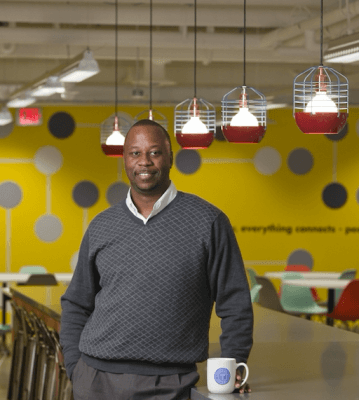Michigan has been hit with a wave of challenges this year. Since the pandemic began, there have been over 127,000 confirmed cases of COVID in the state and close to 7,000 deaths. The state’s economy, which was doing ok before shutdowns and stay at home orders, is just now seeing some light at the end of the tunnel. During the worst parts of the pandemic, the state had an unemployment rate as high as 24 percent — higher than during the Great Recession — and saw a record number of people file for unemployment.
Before being rocked by the pandemic, Detroit was on pace to become a coveted destination for technologists and entrepreneurs. The city’s low cost of living, growth in the tech startup world, and need for tech talent made it a prime location for anyone looking to build something new or launch a career in technology. According to Crain’s Detroit Business, Wayne County, where Detroit is located, saw a 54 percent increase in venture backed tech startups over five years, — those startups raised over $350 million collectively — and a 2018 report by the Brookings Institute ranked the city 4th in advanced industry employment. This is largely due to automotive companies like Ford and General Motors needing tech talent to help them build new vehicles with digital capability.
So how does the city, which has worked hard to build up its tech economy and infrastructure over the years, navigate one of the worst economic downturns the state has ever faced? The pandemic, with all of it’s hardship, hasn’t stopped entrepreneurs from trying to press on with their ventures, and tech leaders and organizations in Detroit are working to make sure the city isn’t forgotten about when it comes to tech innovation.
Coined a “superhub” that’s helping tech businesses in the region launch and grow, TechTown Detroit provides co-working and office space for innovation and connects entrepreneurs to resources and events. When the pandemic hit, the organization launched an emergency fund to offer $5,000 grants to small businesses. TechTown has continued serving the tech business community through these unprecedented times.
“We are a very resilient ecosystem,” said Paul Riser Jr., director of Detroit Urban Solutions at Tech Town Detroit. “We have great architecture and engineering talent and schools. We’ve got a great burgeoning, flourishing, entrepreneur ecosystem that’s maturing.”
To see ventures come to fruition, TechTown offers specific programs for tech startups and small businesses, including intensive accelerators, a 30-week business experience incubator, and a retail boot camp. Though TechTown doesn’t offer funding, the organization has a capital program to provide content, resources and tools for founders seeking financial support.
“Detroit has really gotten to that arena where the ecosystem is more harmonized in its service providers, which in turn make it more seamless for the clients to receive valuable services that can really help to establish growth and scale of their business models,” he said
Back in 2012, Detroit also cut the ribbon on the first satellite office for the U.S. Patent and Trademark Office outside of Washington, D.C. Riser says this was a major step for innovation in the region and will help with the waves of patent applications that can come with new ventures.

“What’s attractive is so much knowledge and intellectual property gets created here, and not just automotive, but in so many other sectors as well,”Riser said.
Riser believes Detroit’s tech ecosystem will be a “beacon” and a “testimonial” to the rest of America as the city works to bounce back from the pandemic. He said the tech ecosystem is not only growing, but it’s becoming a magnet for so many other programs, partners, accelerator programs, innovators themselves, [and] entrepreneurs looking at either moving there or returning to Detroit during this time.
“We have great balance and I think that we have so much going for us positively,” he said. “We’ve had our fair set of challenges and I think that we’ve turned a corner on some of the things that’ve really hit us hard.”
While it’s planning to pivot to offer more virtual programming, Riser said TechTown is also working on bringing more entrepreneurs together to collaborate and learn from one another.
“With Detroit and its unique positions and its diversity of sectors, people and talent, they have the opportunity to really capitalize and that’s what excites me moving forward as the great [and] resilient entrepreneurs are staying so steadfast and strong around the myriad of challenges” said Riser.
A History of Resiliency
For Venture Catalysts founder and executive director Monica Wheat, the challenges brought on by the pandemic are reflective of things people in Detroit and across the state have always had to fight and overcome.
“When the pandemic hit, a lot of businesses for the first time were trying to understand how to struggle, how to do more with less and how to cut costs,” Wheat said. “A lot of Detroit founders were like, ‘we’ve always done that.’ I think that helped us weather the storm of the pandemic in ways that a lot of other ecosystems have never had to think about.”
Venture Catalysts is a nonprofit ecosystem development group focused on large scale initiatives and partnerships and connects entrepreneurs to opportunities by way of events, funding opportunities and accelerator programs. After the nonprofit was founded in 2016, it hosted Detroit Startup Week in the same year and has been doing so since. Similar to Techtown, Venture Catalysts consistently partners with local organizations to serve the entrepreneurial community.
“We are a very robust and well connected community,” said Wheat. “The resources and just the general feeling that everyone you meet wants you to win, is a huge strength of ours.”
Wheat has been doing ecosystem development work for about 10 years and she believes Detroit has the tech talent and need for innovation to keep thriving.
“One of the things we had to do is bet on ourselves and that’s a huge feeling and energy you pretty much feel in any of the accelerators, funds, any other ways our founders are meeting and anything like that. That drives everything.”
Wheat thinks Detroit’s tech business ecosystem will continue to grow far beyond the pandemic. She said “the market hadn’t corrected in a while,” and this economic change is forcing businesses to pivot and reinvent themselves.
A year from now, Wheat is hoping for recovery for Detroit’s tech ecosystem, including new ways entrepreneurs, investors and leaders are collaborating digitally. With more tech companies going remote and Michigan having a lower cost of living compared to other tech hubs, she’s most excited to see technologists come to and return to the Detroit metro area to build on the strong community.
Wheat says entrepreneurs have continued to grow through the pandemic because of Detroit’s strong sense of community and organizations’ willingness to partner. After recently hosting Detroit Startup Week virtually, she plans to keep serving the tech entrepreneurial community through accelerator programs, online learning opportunities and Detroit Black Tech 2020.
For Wheat, community and harnessing the city’s history of resiliency and scrappiness are what will get Detroit’s tech ecosystem through this turbulent and unprecedented time in the country.
“We learned how to thrive when people betted against us, we learned how to thrive when we didn’t have a lot of resources, so we need to take both of those things and keep them in stride as we’re figuring out this whole pandemic ending stuff, which will hopefully come soon.”
This story is possible thanks to support from the Ewing Marion Kauffman Foundation, a private, nonpartisan foundation that works together with communities in education and entrepreneurship to increase opportunities that allow all people to learn, to take risks, and to own their success. For more information, visit www.kauffman.org and connect at www.twitter.com/kauffmanfdn and www.facebook.com/kauffmanfdn.








